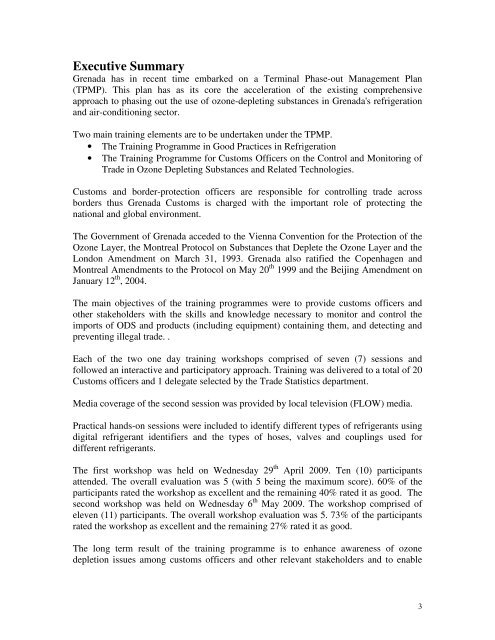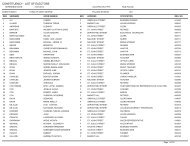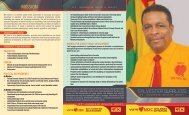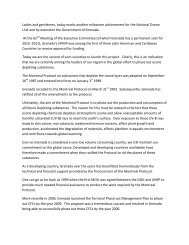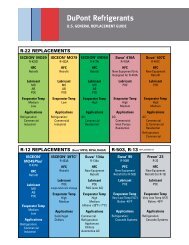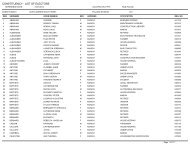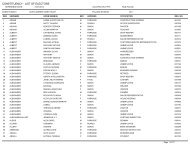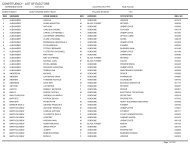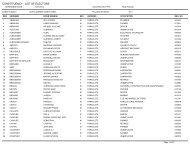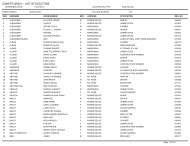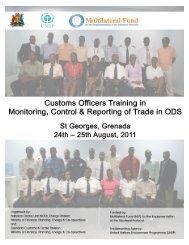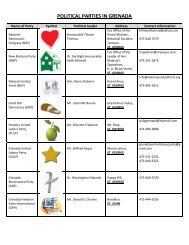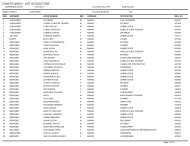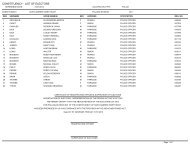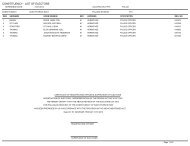Workshop Report - Computer Information Systems Grenada
Workshop Report - Computer Information Systems Grenada
Workshop Report - Computer Information Systems Grenada
Create successful ePaper yourself
Turn your PDF publications into a flip-book with our unique Google optimized e-Paper software.
Executive Summary<strong>Grenada</strong> has in recent time embarked on a Terminal Phase-out Management Plan(TPMP). This plan has as its core the acceleration of the existing comprehensiveapproach to phasing out the use of ozone-depleting substances in <strong>Grenada</strong>'s refrigerationand air-conditioning sector.Two main training elements are to be undertaken under the TPMP.• The Training Programme in Good Practices in Refrigeration• The Training Programme for Customs Officers on the Control and Monitoring ofTrade in Ozone Depleting Substances and Related Technologies.Customs and border-protection officers are responsible for controlling trade acrossborders thus <strong>Grenada</strong> Customs is charged with the important role of protecting thenational and global environment.The Government of <strong>Grenada</strong> acceded to the Vienna Convention for the Protection of theOzone Layer, the Montreal Protocol on Substances that Deplete the Ozone Layer and theLondon Amendment on March 31, 1993. <strong>Grenada</strong> also ratified the Copenhagen andMontreal Amendments to the Protocol on May 20 th 1999 and the Beijing Amendment onJanuary 12 th , 2004.The main objectives of the training programmes were to provide customs officers andother stakeholders with the skills and knowledge necessary to monitor and control theimports of ODS and products (including equipment) containing them, and detecting andpreventing illegal trade. .Each of the two one day training workshops comprised of seven (7) sessions andfollowed an interactive and participatory approach. Training was delivered to a total of 20Customs officers and 1 delegate selected by the Trade Statistics department.Media coverage of the second session was provided by local television (FLOW) media.Practical hands-on sessions were included to identify different types of refrigerants usingdigital refrigerant identifiers and the types of hoses, valves and couplings used fordifferent refrigerants.The first workshop was held on Wednesday 29 th April 2009. Ten (10) participantsattended. The overall evaluation was 5 (with 5 being the maximum score). 60% of theparticipants rated the workshop as excellent and the remaining 40% rated it as good. Thesecond workshop was held on Wednesday 6 th May 2009. The workshop comprised ofeleven (11) participants. The overall workshop evaluation was 5. 73% of the participantsrated the workshop as excellent and the remaining 27% rated it as good.The long term result of the training programme is to enhance awareness of ozonedepletion issues among customs officers and other relevant stakeholders and to enable3


